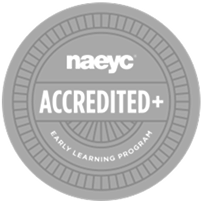
Understanding the Benefits of Social-Emotional Learning


The teaching staff at A. Fantis have proven themselves to be exceptional in all that they do. We have been encouraged to discuss our children's performance...Each staff member that I have had the pleasure of working with has impressed me significantly.

By A. Fantis School Counselor Kara Poulon
School is more than just a place for children to study subjects like math, science, and history. School should play an important role in helping children develop important life skills such as self-awareness, impulse control, and social interaction. Without a structured program in place, however, these skills are not often emphasized in a way that young children can easily comprehend. That’s where social-emotional learning comes into play.
What is Social-Emotional Learning and Why Is It Important?
Social-emotional learning is a specific style of education that integrates social and emotional skills into school curriculum the same way as traditional subjects like math and science. Teachers will deliver lessons that teach social and emotional skills and then find opportunities for students to reinforce the use of these skills. Social-emotional learning is a way to help children better understand their emotions, process those emotions appropriately, and demonstrate empathy for others.
Furthermore, social-emotional learning provides a host of academic benefits to students. According to research by CASEL, students who were part of a social-emotional learning program had 11 percentile-point gains in academic achievement over students who weren’t a part of this type of program. Below, we will discuss the 5 main pillars of social-emotional learning.
Self Awareness
Firstly, social-emotional learning helps children develop self awareness at an early age. Developing a strong sense of self awareness gives children the ability to better understand their thoughts, emotions, and actions, helping them determine what does and doesn’t align with their internal standards. This powerful skill helps children advance further in life, better understanding their unique and special role in the world. Social-emotional learning helps children develop self awareness by challenging them with exercises such as simulation sessions where they are taught to recognize how certain actions affect others, thereby learning to better perceive their own feelings.
Self Management
The self management facet of social-emotional learning teaches children that it is important to learn how to control their emotions and behaviors, which includes processes like stress and time management. Additionally, children learn how to set goals and hold themselves accountable when working to achieve them. To learn this skill, young students are often paired with older students in a mentor/mentee format, where the mentor can share the skills they’ve gathered from practical experience over time and guide the mentee through various issues and challenges.
Social Awareness
Social awareness is another important piece of social-emotional learning. In a diverse and increasingly more interconnected world, the ability to understand, connect, and empathize with others is essential. Additionally, social awareness includes the ability to understand what kind of behavior is appropriate. This not only helps children become better students, but lays the groundwork for a successful career later in life. One way children can become more socially aware is through exposure to people from different backgrounds or through multilingual education, such as our Greek Dual Language Program.

Relationship Skills
Furthermore, social-emotional learning encourages children to develop strong interpersonal relationship skills. Through collaborative activities such as working in groups or participating in team sports, children learn valuable lessons about active listening, team building, and conflict resolution.

Making Responsible Decisions
Finally, the last pillar of social-emotional learning is responsible decision making. Learning how to act appropriately in social situations is an important life skill that is best developed at an early age. By considering social norms, safety concerns, and potential consequences arising from their actions, children are equipped to make wiser, more responsible decisions. Social-emotional learning can help children hone this skill by integrating qualitative problem solving exercises into their curriculum.
To find out how the application of social-emotional learning has contributed to the scholastic achievements of our students, click here.


Ready to Apply?



